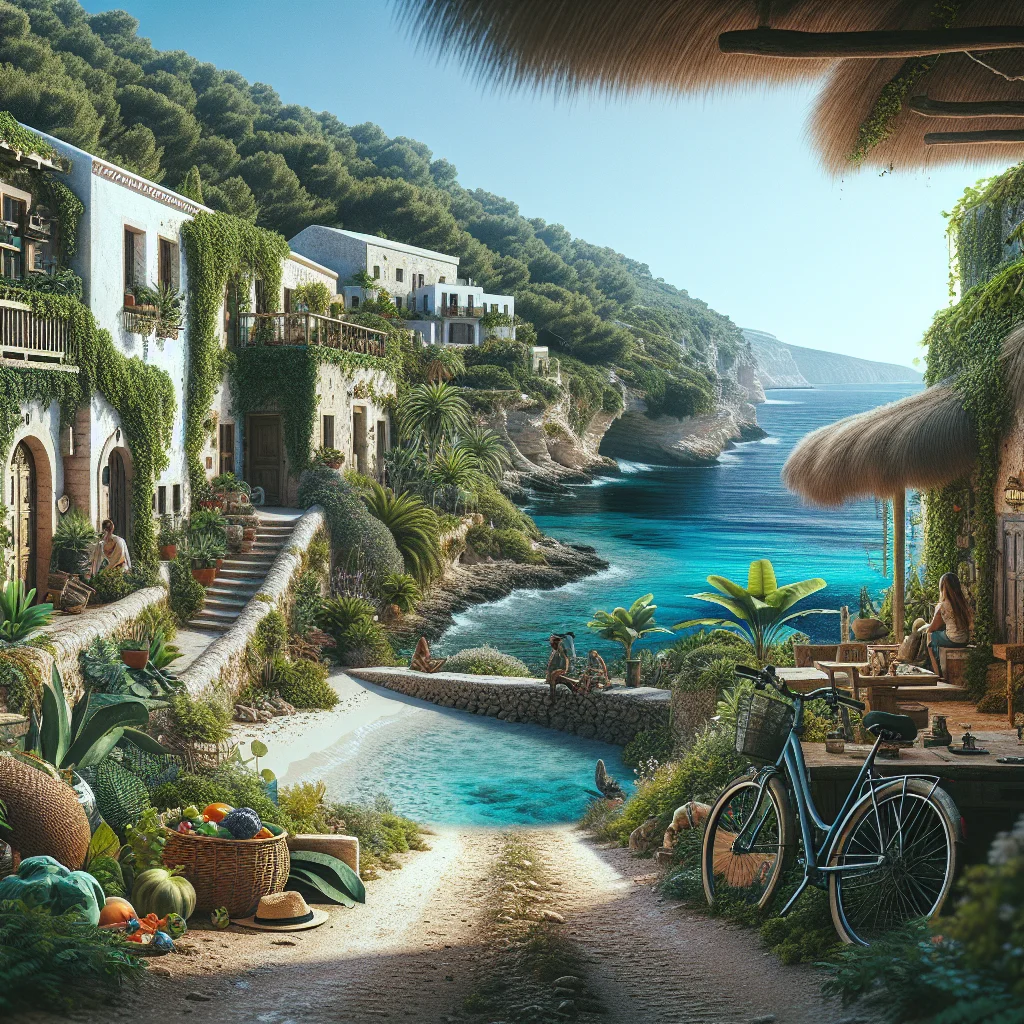Experiencing Formentera's Cultural Heritage Through Eco-Tourism
May 13, 2025

Formentera, the smallest of the Balearic Islands, is not just a paradise of golden beaches and crystal-clear waters—it is steeped in rich cultural heritage waiting to be discovered by eco-conscious travelers. Understanding the significance of preserving local traditions while engaging in sustainable tourism practices is essential to fully appreciate what Formentera has to offer. In this article, we will dive into various eco-friendly cultural experiences that allow you to engage with the island’s history, community, and cuisine, all while minimizing your ecological footprint.
Understanding Formentera's Cultural Tapestry
Formentera’s cultural heritage is a blend of influences from various eras—Phoenicians, Romans, and more recently, the thriving Mediterranean influence. This unique cultural tapestry manifests itself in local traditions, music, folklore, and culinary practices. To truly appreciate this heritage, tourists must strive to engage authentically and sustainably. By participating in community-based activities, you not only enrich your experience but also contribute positively to local economies.
Local Craftsmanship and Artisan Workshops
One of the most effective ways to immerse yourself in Formentera’s culture is through its craftsmanship. Consider booking a workshop with local artisans specialized in traditional crafts such as pottery or textile making. Generally, these workshops focus on using sustainable materials and methods, reinforcing the importance of environmental consciousness. By learning from seasoned artisans, you not only gain insightful knowledge of their craft but also help preserve age-old techniques.
For instance, the island is known for its intricate woven fabrics. Participate in a weaving workshop where you can seek hands-on experience while supporting local craftspersons. This not only offers a unique souvenir to take home but also helps sustain the local craft economy.
Culinary Journeys: Tasting Formentera's Flavors
Exploring Formentera’s culinary landscape is another rewarding way to experience its culture sustainably. The island is home to fresh, locally-sourced ingredients that reflect its ecological values. Enjoy a meal made from organic produce at one of the island’s many farm-to-table restaurants. By choosing local eateries, you support farmers who practice sustainable methods and contribute to their communities.
Additionally, consider participating in a cooking class. These classes often emphasize local recipes that have been passed down through generations. You’ll learn how to prepare traditional dishes like ‘sopa de pescado’ (fish soup) and enjoy them in an eco-friendly setting.
Festivals: Celebrating Community and Tradition
Festivals in Formentera provide a vibrant glimpse into the island’s cultural identity and are often steeped in history and tradition. Celebrating these festivals sustainably is key to minimizing their ecological impact. Events such as the annual Festival of Sant Jaume usually feature local music, dance, and traditional gastronomy, celebrating the island’s patron saint with communal spirit.
Engaging in these festivities can be an immersive experience; however, it's essential to approach it mindfully. Attend events that emphasize local artisans, sustainable practices, and organic cuisine. This way, you contribute to the community’s traditions while respecting its environment.
Walking Tours: Understanding the Heritage on Foot
Walking tours are one of the best ways to connect with Formentera’s cultural heritage. Choose guided tours that are provided by local historians or community members, allowing you the chance to learn the stories behind significant landmarks such as the iconic lighthouse at La Mola or the ancient Phoenician remains.
To keep your ecological footprint in check, opt for walking or biking over motorized transport. This not only enhances your engagement with the island's history but promotes a healthier approach to travel. You’ll have the opportunity to explore lesser-known sites, enjoy scenic views, and discover the rich biodiversity that contributes to Formentera’s charm.
The Role of Community Engagement
When looking to experience the cultural richness of Formentera, community engagement is vital. Seek out social enterprises or cooperatives that support local initiatives. By participating in their programs or purchasing local goods, you empower the community and help sustain their way of life.
Adaptive tourism that respects and incorporates local customs can significantly enhance your travel experience. Talk to locals, listen to their stories, and engage in activities that reflect their values and lifestyles. This approach fosters mutual respect and understanding, promoting a sustainable future for both visitors and residents alike.
Eco-Conscious Travel Tips
To ensure your travels remain eco-friendly while experiencing Formentera's culture, consider these practical tips:
- Choose Eco-Friendly Accommodations: Opt for lodgings that practice sustainability through energy-efficient systems, water conservation, and waste reduction.
- Reduce Plastic Usage: Carry reusable water bottles and bags to minimize plastic waste during your stay.
- Support Local Businesses: Purchase from local markets or artisans, ensuring your money goes directly back into the community.
- Respect Local Customs: Be mindful of cultural practices and adhere to local traditions, contributing to a positive visitor-resident relationship.
Conclusion
Formentera’s vibrant cultural heritage offers travelers unique opportunities to engage with the island’s traditions, all while embracing sustainable practices. Through artisan workshops, local culinary experiences, community festivals, and mindful exploration, visitors can enjoy a deep connection to the island’s history and people. Understanding the importance of eco-tourism and community participation ensures that the legacy of Formentera will thrive for future generations.
Back